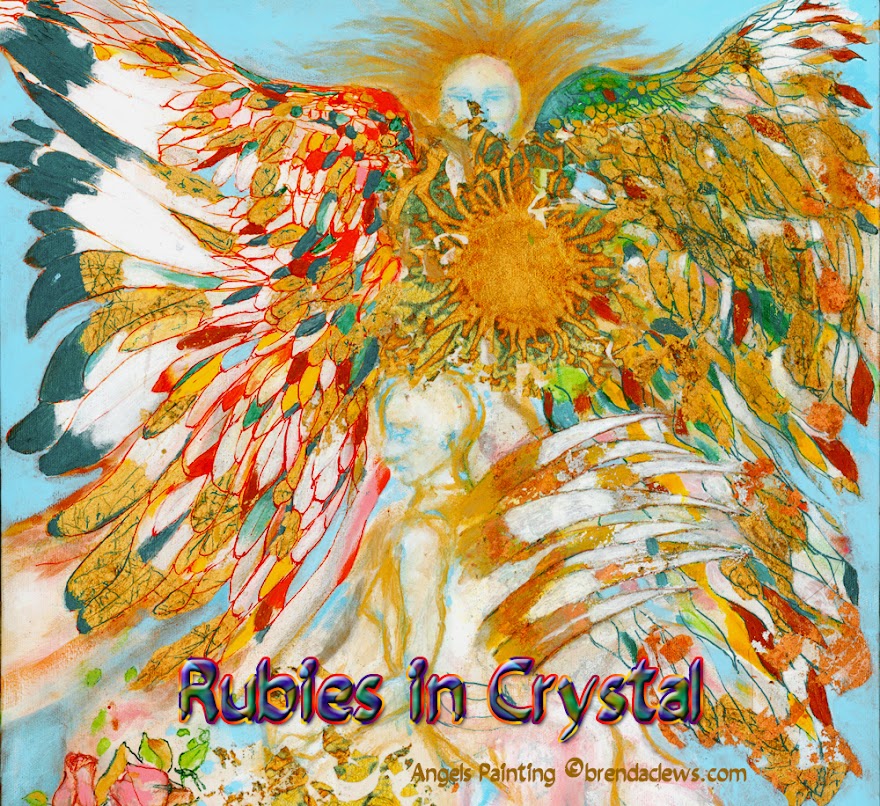direct link:
Seraphic Tears by Catherine Corelli on Jamendo
In the second track the Russian artist, Catherine Corelli, sings, "From the hidden depths of you I come…" and we know we are in shadowland, in the world of the black moon, what we've negated, hidden, repressed is returning with fury and grief.
An occult album of secrets. Of madness and sexuality.
Lilith (whose story is told in the album's
introduction) is a threatening, powerful archetype of female creativity, power and sexuality, and feared in the dominant male culture of politics and religion (which is falling away, which is falling away at last). The black moon, in astrology between the moon and earth, is always prominent in the charts of creative, powerful women. Catherine Corelli is such a woman.
Lilith is made to suffer for her beauty, strength, passion, fire of creativity. Born equal, equally out of the earth with Adam, she won't bow to her partner, won't surrender herself to become subordinate to him. Faced with his angry resistance, she flees instead. Adam complains to G-d that his wife has gone. Angels are sent to find her and bring her back. She refuses, knowing she has been relegated the hideous task of harming infants for her claim to equality which is seen, by G-d and Adam as insubordination.
This is how the album opens for me. The horror of Lilith's life on on the edge of existence. The infants who must be protected with the names of angels in the amulets they wear. The creativity and sexuality of women that is hidden, cast aside, used. Ladders is a beautiful riff, Catherine's vocals contain much complexity, yet there is horror, too. Lilith knows horror in a way that Eve never does. Lilith is the true and ancient Babylonian Biblical goddess who reigns with the power of unfettered womanhood.
Lilith became queen of the witches through the centuries as her mythology was twisted into demonic proportions by the Jewish, Christian and Islamic religions. She came to represent unbridled lust, impossible-to-resist seduction, a burning of sensuality, unbridled lust, dangerous sexuality.
I hear all this in the neoclassical-metal of Catherine's voice. The passion, the screams, the tenderness, the horror, the love. Whatever Catherine Corelli has done to train her voice to traverse the range she does in the album, and it is an emotional experience to listen closely, whatever determination to reach beyond her range and still further brings a vision alive to us as we listen with rising indignation, and a fury of understanding in our hearts.
In some of the songs we get the sense that Lilith, in her degradation, the disrespect she received for her powerful creativity, her insistence on equality, is sexually abused. That throughout history perhaps the story of Lilith, the lamia, the whore, the lustful sinner, the one who is disobedient and poses the greatest threat to the dominant order, the succubae, her licentiousness, which is blamed for the death of infants (how outrageous!), perhaps these twisted labels justified the rape of women.
One of the most disturbing, and paradoxical pieces on the album, "amJZZ (HR Giger. Erotomechanics IX Fellation)" reads one way, as a seductive invitation, and yet is sung the opposite way, as a woman who is trapped in something abusive, who has to please her tormenter. It's a double-edged 'come hither'; like the two-tongued serpent she must swallow. She takes on the passion of Lilith, indeed:
i no longer fear.
kitten's noses burn,
your blood pressure's high,
i know all you yearn,
nothing i'll defy.
slide it down my throat...
push it down my throat...
slide it down my throat...
push it down my...
push it down my throat...
that's what i like,
that's what you want.
slide it down my throat,
lemme drink your 'am' jizz...
This is a dangerous, furious album, the dark beauty of Catherine's voice will make you weep, the strength of her scream will echo in your ears, the indignation of the injustice done will leave you shaken with recognition.
In the final song, "Adieu (Coherence Dissolvation)," she leaves Adam, the world of a repressive hegemonic dominance, in the last track, "Listen, you! /What I say’s, adieu! /Fucking… /Listen, you! /What I say’s, adieu! /Adieu!"
She gives us a volcanic album. Of grief, loss, abuse, fury, beauty. Of a woman who is in her creative power, who is on fire with inspiration, who is achieving as an artist a magnificent realization of her vision.
Here is our true Lilith, first woman of creation. Full with occult power. Sexually, sensually, creatively alive. The genius of women. Lilith is not madness but fertile sanity. Mother to us all. Lover of the world.
She rises in consciousness with a perfect title, "Seraphic Tears," written backwards on the album's cover over the sign of the black moon.



